Description
The range holds many different shades and effects :
- Cernit Number one: 42 opaque colours, glossy after polishing. Available in 56, 250 or 500g.
- Cernit Porcelain: 14 colours with a porcelain-like finish. Available in 56g.
- Cernit Glamour: 7 pearlescent colours in pieces of 56g.
- Cernit Metallic: 7 metallic colours in pieces of 56g.
- Cernit Translucent: 14 transparent colours and one glow-in-the-dark colour. This range is very popular among artists due to its amazing transparency. This range is available in 56g, 250g
- Cernit Neon: The most neon of all polymer clays, 4 colours available in 56g!
- Cernit Nature : 3 colours with a stone and dirt effect thanks to strands in the clay that allows an irregular aspect, similar to the one of a stone. Available in 56g.
- Cernit Shiny: 14 colours in 56g, highly concentrated in coloured mica that contrast with the colours of the clay. The shiny is different from the glamour due to the thinness of the glitter in it and the effects of the colour. These colours are perfect for jewellery as they have a pretty metallic effect together with coloured hints.
- Cernit Doll: 7 colours that have a skin-like effect (slightly transparent) and one translucent flesh colour. This clay has an aspect very close to flesh, a porcelain-like finish and is totally suitable for creating dolls. Each piece weighs 500g.
- Cernit Soft Mix: a clay softener that does not change the colour of the clay. You can mix up to a third of the softener with 2/3rd of polymer clay Cernit. This way, the clay will be easier to work with and softer. The plasticity of the clay is increased.
How to use polymer clay Cernit.
Once unpacked, the clay has to be kneaded in the palm before starting modelling so that it becomes softer and easier to work with. The clay should be used with clean hands on a clean surface as well to prevent any dirt or dust from getting in the clay.
How to bake polymer clay Cernit.
The Cernit clay polymerises between 110 and 130°C (230-266°F) in a preheated oven. Baking time is 30 minutes. The temperature should be respected as harmful gases could develop and the colour could be corrupted.
Please note that this clay cannot be baked in a microwave oven. After baking, the clay is waterproof. Also, it can be baked several times if you wish to add bits to your work.
When you are done baking, the clay can still be worked with. It can be sanded, drilled, varnished according to the finish you like. For polishing, start with sanding the clay with fine-grain sandpaper. Finish with a polisher to get a maximum glossy effect. The clay could lose some of the glossiness. Then, it has to be polished again. The result will be the same as with varnish. However, the varnish will resist the rubbing and does not need to be applied again.
As soon as your piece of clay is baked and maybe polished, you can still work on it by adding acrylic paints, oil paints, mica powders or varnish.
Safety
Cernit does not contain any phthalates. Children should not be left without a watch while using the clay. This product must not be put in the mouth and we advise washing hands after each use.
One should not eat, drink or smoke in an area that is dedicated to modelling Cernit.
Please note: we do not stock the complete range. Currently we do not have the Porcelain, the Glamour and the Shiny range.


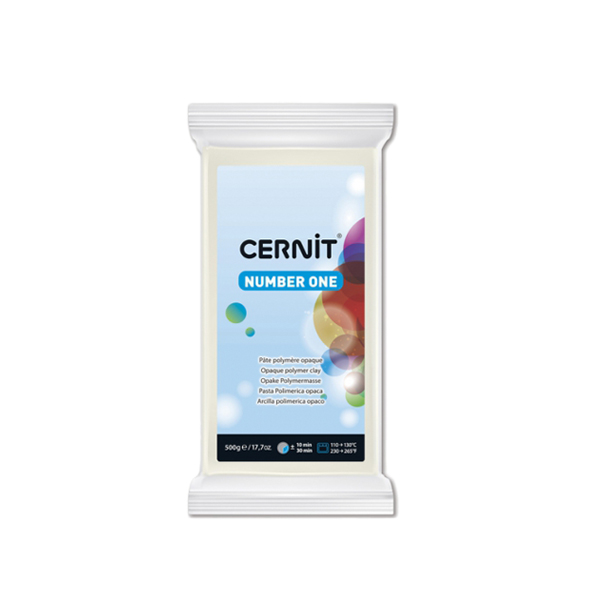
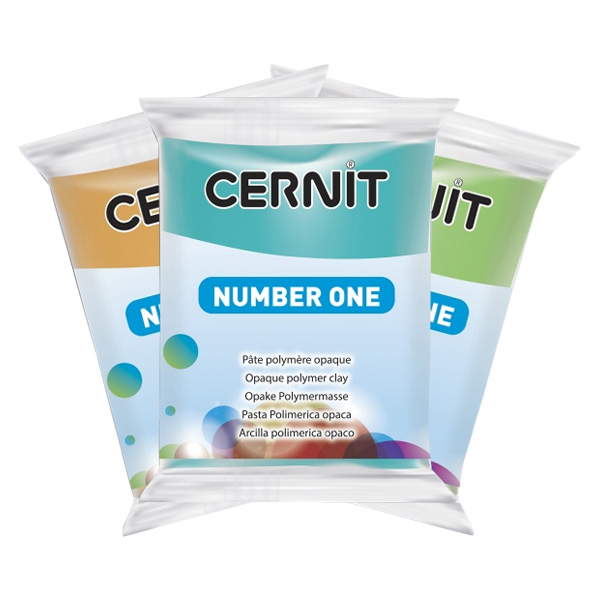
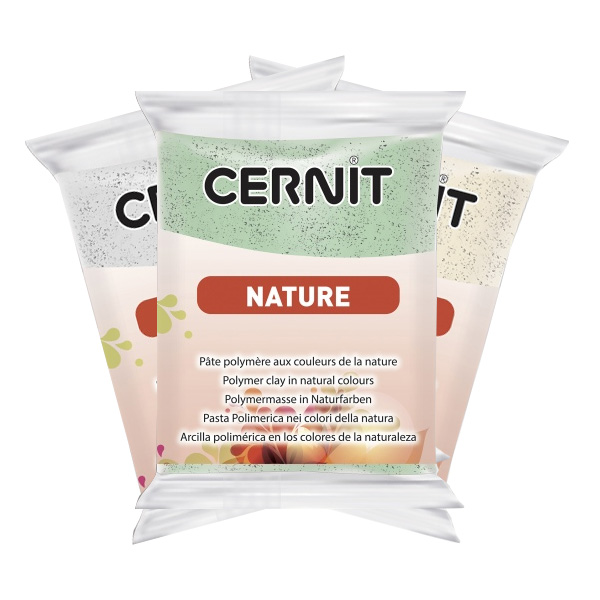

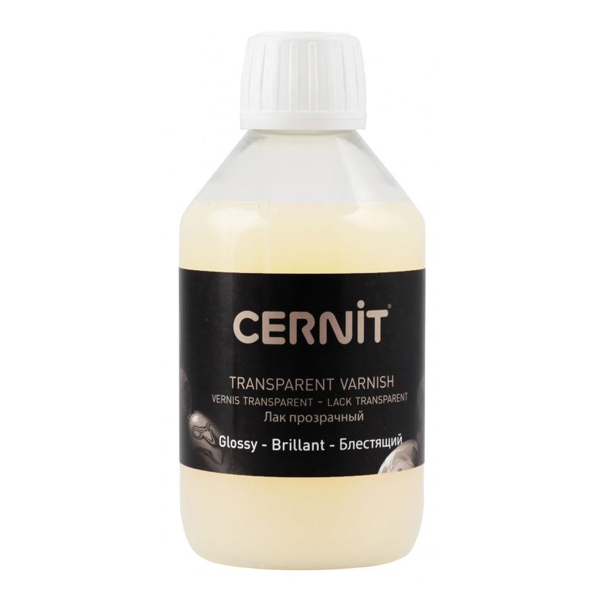
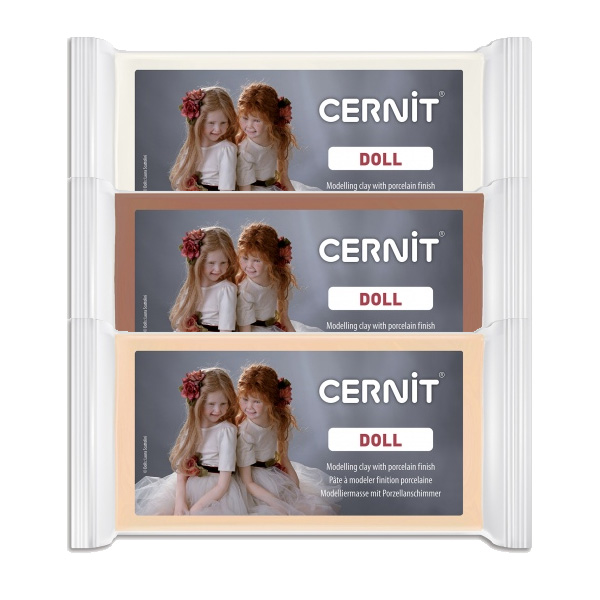

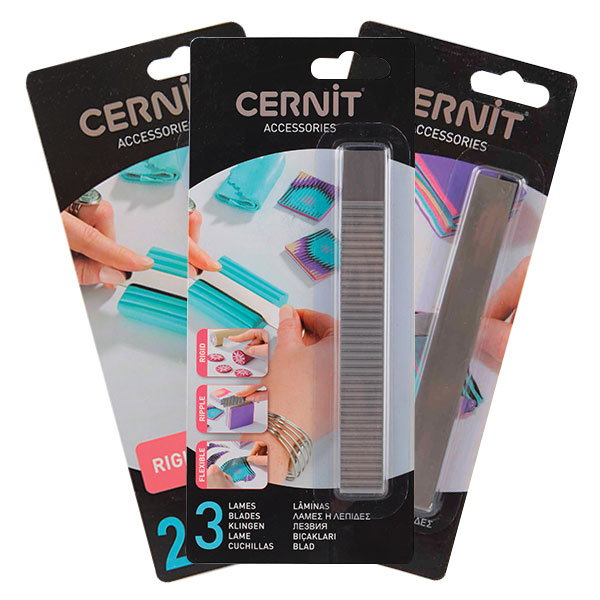
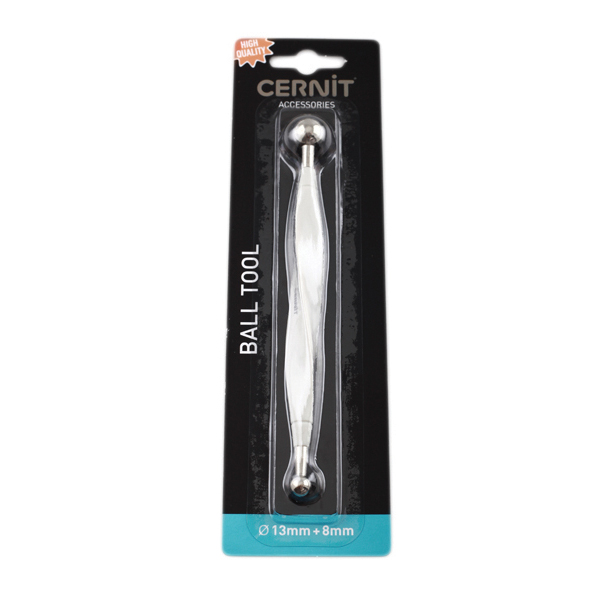
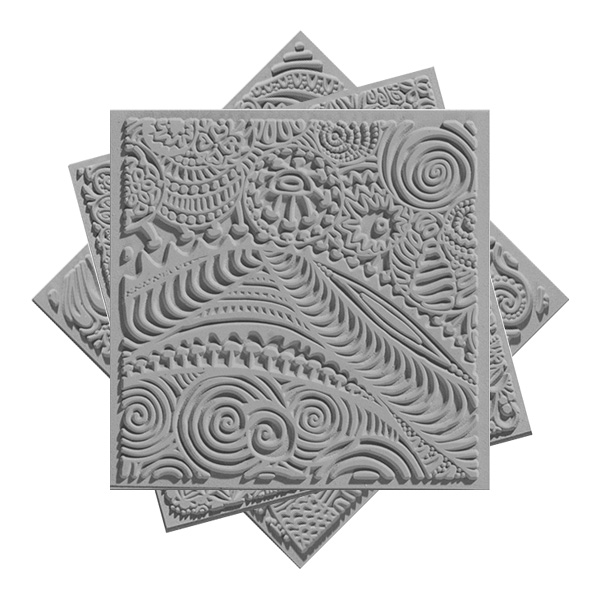
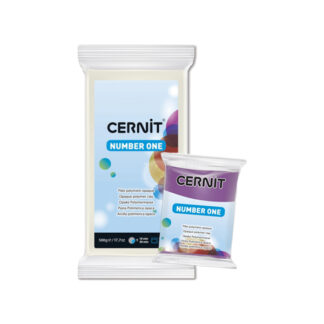
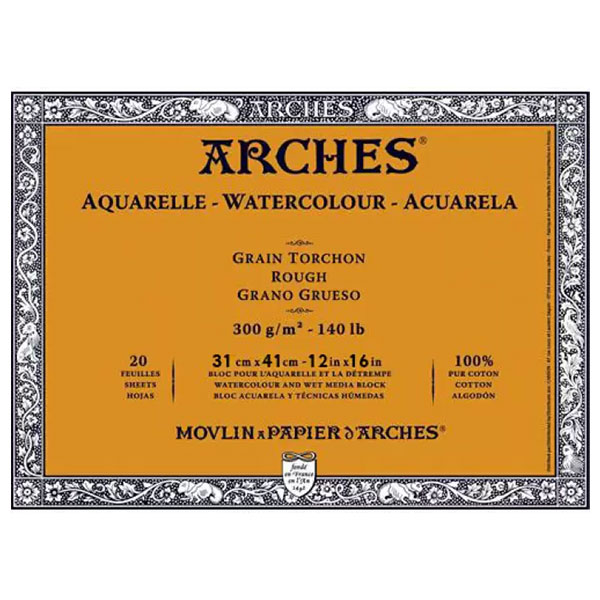
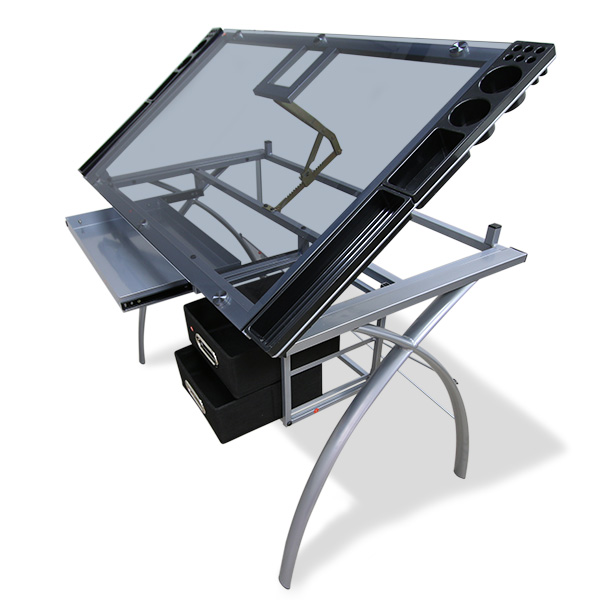

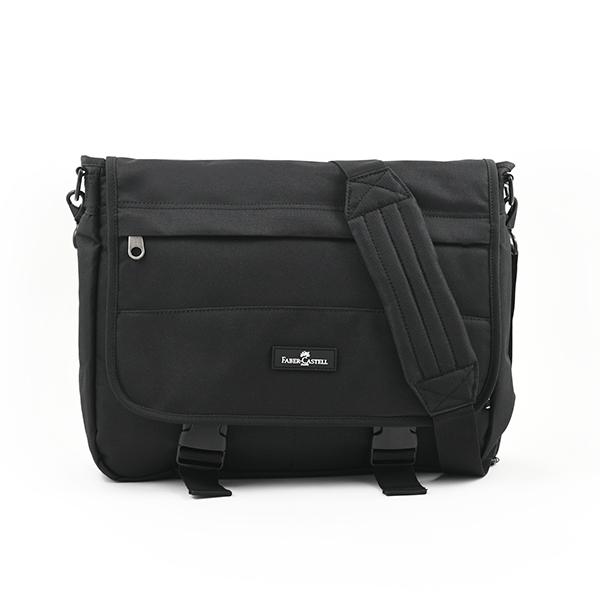

San-Marie –
Cernit Number One Polymer Clay is a favourite of mine to use. It’s easy to work with and bakes well. And there are 42 colours to choose from!